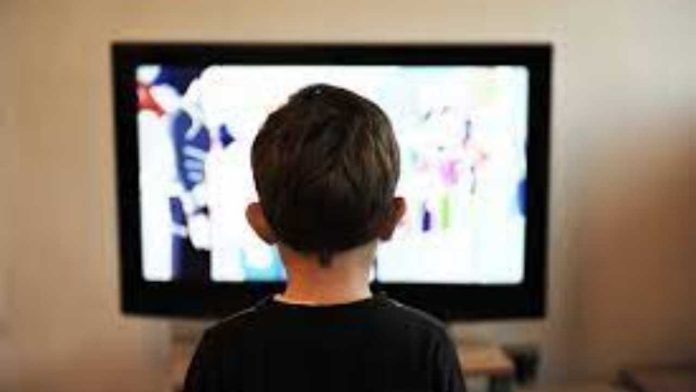Television consumption has a significant impact on our children’s lives. While television can entertain, instruct, and keep our children entertained, it may also have a negative affect on them. Reading, schoolwork, playing, exercise, family contact, and social development are all harmed when time is spent watching television. Children can also learn unsuitable or erroneous information from television. They frequently can’t distinguish the difference between reality and the fantasy shown on television. Thousands of commercials are viewed each year, many of which are promoting alcohol, junk food, fast food, and toys.
Exaggerated stereotypes in television characters can alter children’s expectations of individuals in everyday life. They may develop erroneous perceptions of society because, despite the fact that television has evolved through time, women, young people, and the elderly continue to be underrepresented on screen. Topics like drug misuse, drunkenness, and sex may be brought up to the youngster earlier than necessary. Furthermore, on television, youngsters frequently have difficulty discerning between imagination and reality.
Although there are some possible benefits to watching television episodes, such as learning desirable aspects of social conduct, there are also many detrimental health consequences. Aggressive behaviour, sexuality, academic performance, body concept and self-image, nutrition, dieting, and obesity, and substance misuse are all shown to have detrimental health consequences. Children and teenagers are especially susceptible to the messages broadcast on television, which have an impact on how they think and act. In the episodes and movies they watch on TV, kids see their favourite characters smoking, drinking, getting into sexual situations, and engaging in other harmful activities.
Violence on the screen:
Children have been condemned for jumping from roofs and risking their lives in perilous stunts in an attempt to imitate superheroes and models shown in ads. Some even feel that violent programming on television is a direct cause of youthful crime. Even seemingly benign cartoons like Tom and Jerry, in which they are continuously beating one other to attract a screaming audience, communicate specific messages to children. Children learn that violence is a way to get power from such violent programmes. The following are the three significant consequences of watching violent television:
- Children may lose sensitivity to other people’s sorrow and suffering.
- They may be more afraid of the world than adults.
- Children are more inclined to act aggressively or in a destructive manner toward others.
Parents can limit the effects of violence:
Watch TV with your youngster and talk about the violence. Discuss why the violence occurred and how distressing it is. Inquire of the youngster how to resolve problems without resorting to violence. Explain to your child that the violence depicted on television shows is fictitious. Restrict the viewing of violent videos. Encourage your youngster to watch shows with characters who work together, support one another, and care about one another. It has been proven that these programmes have a favourable impact on youngsters. Rather than watching television, read to your youngster. Conflict is depicted in a more realistic and helpful manner in children’s stories produced by smart authors.
Keeping an eye on what’s on TV
Children’s minds are malleable, so it’s critical to limit what they’re exposed to. Parents should follow the following suggestions, according to health experts:
- Limit children’s TV viewing time to no more than 1 to 2 hours of high-quality content per day.
- Children’s television sets should be removed from their rooms.
- Encourage youngsters under the age of two to engage in more engaging activities such as talking, playing, singing, and reading together instead of watching television.
- Keep an eye on what shows your kids and teenagers are watching. The majority of programmes should be educational, nonviolent, and informative, or programmes that promote assisting, caring, and cooperation.
- Watch TV shows with your kids and talk about what you’re seeing.
- Set a weekly restriction on how much you can watch. Allow your youngster to choose shows from television schedules that you approve of at the start of the week.
- At specific times of the day, like as mealtimes and sleeping hours, TV should be avoided.
- Keep in mind that youngsters absorb information from their parents.
- If you watch a lot of TV, your child is likely to do so as well.
- Parents should establish a schedule for watching TV with their children.
- Distinguish between what is real and what is made-up on television with your youngster.
Explain how television creates imagination via stunt actors, camera zooms, dream sequences, and animation.
Advertisements
There is evidence that children as young as 6 or even 8 years old don’t grasp that advertising’s goal is to sell a thing. Furthermore, youngsters have difficulty distinguishing between advertisements and programmes. Children are easily persuaded by television ads and are typically eager to purchase the items displayed on the screen. You’ll have to devise your own approach for dealing with this. Discussing the family’s health and balancing the household budget with children might be a wonderful idea. They will value the ability to make educated decisions rather than being passive recipients of commodities. The endeavour necessitates gentle parenting and is a long-term commitment. It’s critical that you explain to your children that advertising’s sole objective is to sell items to as many people as possible.
Disclaimer:
This content, including advice, is intended to provide only general information. It is not a substitute for professional medical advice. For more information, always visit a professional or your personal doctor. This information is not the responsibility of Articleify.



















![10 Countries With the Best Healthcare in the World [Statistical Analysis] Countries With the Best Healthcare in the World](https://articleify.com/wp-content/uploads/2025/07/Countries-With-the-Best-Healthcare-in-the-World-1-150x150.jpg)









